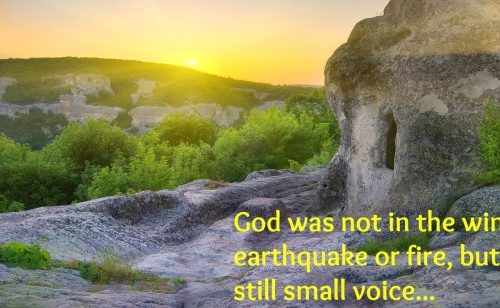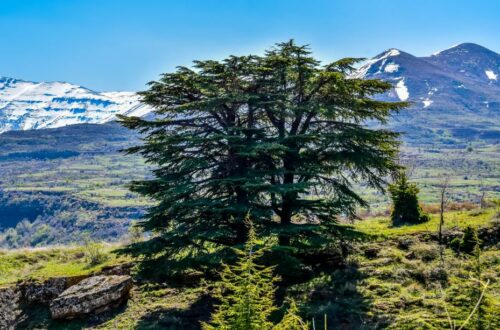The Island Wilderness
Leadership is broken because leaders are unbroken
Wilderness Wanderings Series:
Learning to Live the Zigzag Life
He must have been too hot to touch, that ancient elder of Ephesus, or the Roman authorities probably would have taken him in much sooner than they did…
Maybe they were concerned that, since he was so beloved, there would have been a strong reaction in Ephesus, the number two city in the Roman Empire, if they took him into custody. Ephesus was a place where they did not want any unrest.
Whatever their reasoning, by the time they exiled him he was in his nineties, perhaps frail and declining in health. His wilderness was not a dusty desert but a small, rugged, rocky island just off the coast of modern day Turkey, called Patmos.
The Romans used Patmos as a penal colony where they warehoused their political prisoners. Domitian, the Roman emperor at the time, sentenced John to exile perhaps because John rejected emperor worship. Maybe the authorities thought the apostle would die on Patmos or at least change his ways after such difficult treatment, but he outlived the emperor and was released from the island following Domitian’s death, a greater worshipper of Jesus than ever.
The kingdom of Rome exiled John, but he was part of a different kingdom, one from which he could never be exiled and one far greater than Rome, though it didn’t seem that way on the surface.
From Second to First
John was an uncommon man, worthy of respect from both his friends and his enemies. As prominent as he was among the apostles, he is nearly always mentioned last in any reference with James, his brother, or with Peter, at times his ministry partner.
He didn’t move to the foreground until after the others had been martyred and he had reached old age. Maybe he was mentioned second because he was the youngest of the apostles. Certainly we know he was assertive in his youth. After all, Jesus called him and James the Sons of Thunder because of their temperaments and their aggressive natures, seeking to call down lightning from heaven on a village that rejected Jesus and asking to sit on His right and His left in His kingdom. Nothing shy about them.
As a young man John was a small businessman, a partner in a fishing business on the Sea of Galilee with James and Peter. One day as John was mending their fishing nets with James, Jesus approached them and called them to follow Him. Immediately they responded, leaving their father and their hired hand to look after the business.
At that point John became a man called to follow Jesus, chosen to be an apostle who became the most intimate disciple Jesus had. He, along with James and Peter, was with Jesus in every situation including His transfiguration and His struggle in Gethsemane, and the one apostle who stood at the foot of the cross with Mary as she watched her son die in the agony of crucifixion.
From Lightning to Love
James and John were ambitious, aggressive, belligerent, and territorial young men, who tried to stop a man who wasn’t part of their band from casting out demons in Jesus’ name. In those days they had no idea at all of what Jesus came to do, nor did they realize that one day they would be part of the foundation of a worldwide movement. To them, if someone wasn’t in their club, he had no right to use Jesus’ name. Jesus corrected them.
After the first few chapters of Acts, John disappears from the pages of scripture only to reappear as the Apostle of Love through his Gospel, his epistles, and the book of Revelation. As he aged John became the most thoughtful of the original apostles, a man who moved from the narrow confines of Galilee into the broader streams of Greco-Roman thought without ever changing his commitment to the gospel of Jesus Christ.
Thus, the Apostle of Love was also the Apostle of Truth who showed that Jesus is the only way to enter into a relationship with the true and eternal God. John was both able to open his heart in love for all and focus his mind on truth for all. So he wrote the most philosophical and thoughtful of the Gospels, while at the same time, in some respects, the most simple.
His Gospel is built around seven signs designed to prove that Jesus is the Christ, the Son of God, and the way, the truth, and the life. He is the Light of life, the Bread of life, and the Water of life, everyday pictures of what all need for life: light, food, and water. He took complexity and turned it into simplicity, all the while maintaining the dignity of eternal truth.
Who would have thought that the son of thunder and lightning, who wanted to keep the name of Jesus for just a handful of men like he was, would one day write the most universal Gospel? He was a transformed man, and nothing shows this as clearly as his political exile on the island of Patmos. So what do we learn from John’s island wilderness?
1. John’s island wilderness came as the natural climax of a life of growth.
John certainly remembered the day so long before his time on Patmos when Jesus led His men up to the region of Caesarea Philippi in the far north of Israel. Caesarea Philippi was one of the birthplaces of Roman emperor worship built, to honor Julius Caesar who was declared to be a god by the Roman senate.
On that day Jesus asked His men who they thought he was, and Peter identified him as the Christ, the Son of the Living God. Right there in the shadow of the city built to honor Julius Caesar, right there in the place where the Roman emperor was worshipped, right there in the place where Caesar Augustus was recognized as the son of god based on the fact that he was the son of Julius Caesar, right there Jesus called for His men to go against Emperor worship and recognize Him as the only one worthy of worship. That’s why John was on Patmos and that’s what John did on that island: worship Jesus in the Spirit.
As John grew in love he grew in worship, and as John grew in worship he grew in his willingness to pay any price no matter how old he was to honor Jesus as the Son of God. If we are growing in our love for Jesus and our worship of Him, we are growing in our willingness to risk everything for Him. That’s the natural climax of growth in our lives.
2. John’s island wilderness shows that advanced age means advanced testing.
We have seen this reality before in Moses, David, and Daniel and we know that Abraham, Peter, and Paul faced this truth as well. John confronted his greatest test after he was past ninety—and he passed it fully and totally.
All of his life focused on this eighteen-month season of testing through which God drew out of John all He had put in him. What glory John gave to Jesus. What man has ever given more glory to Jesus through his writing and his record of the Revelation of Jesus? God put John on Patmos because He knew how John would respond; He knew John would be His instrument to bring eternal truth into the temporal world.
Wouldn’t it be great if God could trust us the same way? Wouldn’t it be great if God could bring us into our old age and use us to show others His purposes?
3. Advanced testing results in intense worship.
Perhaps the most important words in the book of Revelation are the words, “I was in the Spirit on the Lord’s day.” John was in the place where God wanted him to be—in the Spirit. The apostle used the time on Patmos to focus on Jesus. Patmos was inescapable, but John escaped from the confines of the Roman penal colony to the limitless expanse of eternity through worship.
He turned this time of intense testing into a time of even greater worship by giving himself fully to the Spirit. Testing has a way of bringing life into focus and of requiring us to make a choice: we can complain and get angry with God or we can cast ourselves on God in new and deeper ways. While none of us will receive a revelation as John did, we can get insights into God and understand Him in ways we never could otherwise through the advanced testing that advancing age brings.
4. Intense worship brings intimate understanding.
What gave John his capacity to look past Domitian and the power of Rome and see Jesus and the power of eternity? His utter radical commitment to Christ. Because of this he could see past the visible presence of Rome to the invisible presence of God, past the powerful armies of Rome to the omnipotent hand of God, past the fading glory of Rome to the eternal glory of God. This vision enlightened his way, opened his eyes, and gave him hope when others had no hope.
Not every wilderness is a desert. There can also be an island wilderness that might come as your ultimate test, your most advanced test, at your most advanced age. Learn from John how God takes our greatest wilderness and makes it our greatest moment.
From "The Island Wilderness" on www.leaderformation.org/blog
 About: The Broken Leadership Blog is about changing the leadership conversation from what we are doing with our hands to what God is doing through our hearts.
About: The Broken Leadership Blog is about changing the leadership conversation from what we are doing with our hands to what God is doing through our hearts.







One Comment
Nakisha Hicks
Amen!
A powerful story.